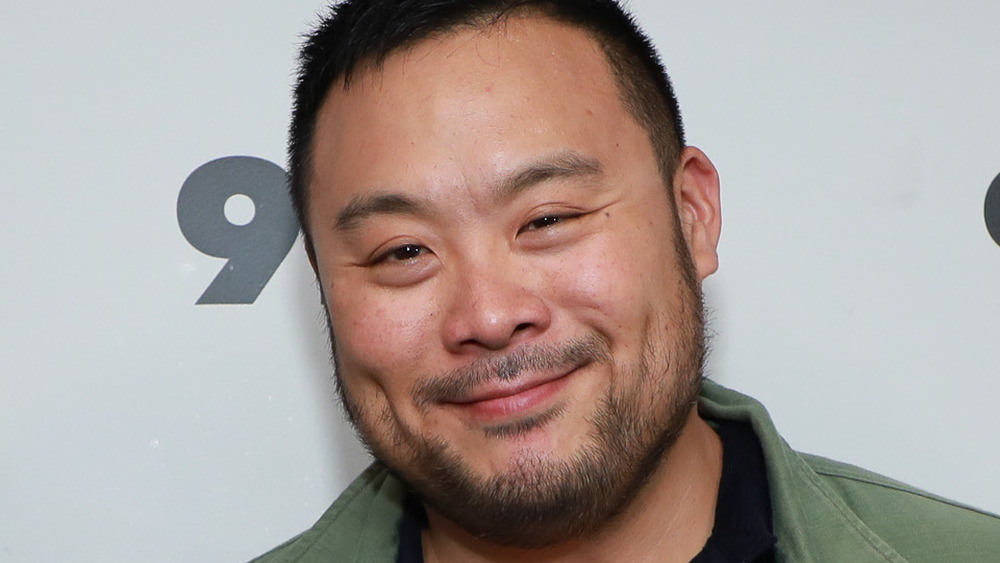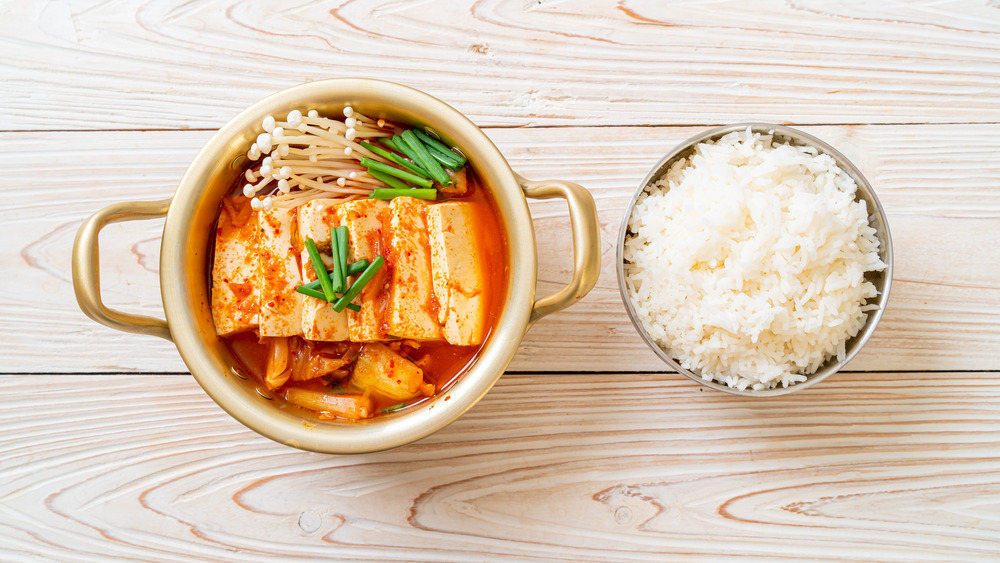Jjigae Rules David Chang Says You Should Never Break
David Chang has opinions about things. The celebrity chef made a name for himself when he founded Momofuku Noodle Bar in New York in 2004, and his work in the public eye (see: Ugly Delicious on Netflix), his involvement with 15 restaurants worldwide, and the book he published last year all mean that he's been handing out those opinions freely ever since (via Eater). One such opinion came in the form of a command last week, when Chang posted an Instagram video about the correct way to eat jjigae.
Kimchi jjigae, a stew often made with tofu, is a spicy, simmering staple of Korean food culture. Bon Appétit's recipe calls for Korean spices gochugaru and gochujang to accompany the onions, scallions, and kimchi that gives the dish its name but is otherwise indifferent to how you make your soup. "While firm tofu is traditional, any vegetable or meat would be in good company with this stew's spicy-funky base," the recipe mentions politely, before listing three different types of pork you could use and suggesting that rice be served alongside.
No matter how you eat it, kimchi jjigae is a Korean classic
Not so with David Chang, who has some hard and fast rules that surround his interpretation of the dish. "There is no waiting for the jigae [sic] to cool down. You eat this boiling cauldron of spicy goodness right away, as fast as possible and inflict maximum pain upon yourself," Chang says in the caption on his post, following up with an emoji of the Korean flag to emphasize that this is the manner intended. He continues, "ps — You eat spoonful of rice after you shovel a spoonful of jigae. No mixing rice and soup in bowl."
In a lengthier format (and less intimidating tone), actress Yuh-jung Youn chatted with Esquire in February, explaining the importance of kimchi jjigae in Korean culture. "Every Korean family has a different style of kimchi jjigae," says Youn, who has a reality show in South Korea called Youn's Kitchen. "Through wintertime, we eat kimchi every meal, and so after we have leftover kimchi, we just make kimchi jjigae." There's no word on whether or not Youn's kimchi jjigae follows Chang's rules, but something tells us she is a little more flexible in the kitchen: "Kimchi is... it's like representing Korea. So with kimchi, you can make anything."

